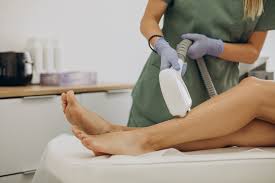Struggling with persistent breakouts, blackheads, or stubborn blemishes can be incredibly frustrating and impact your confidence. While the beauty industry is flooded with harsh chemicals and expensive treatments promising quick fixes, the truth is that you can get clear skin naturally using gentle, effective methods that work with your skin’s natural healing processes. Natural approaches not only help clear existing breakouts but also prevent future ones while maintaining your skin’s health and balance.
Understanding Acne: The Root Causes
To effectively get clear skin naturally, it’s essential to understand what causes acne in the first place. Acne develops when hair follicles become clogged with oil, dead skin cells, and bacteria. This process is influenced by several factors including hormonal fluctuations, genetics, stress, diet, and environmental factors. Unlike harsh chemical treatments that often strip the skin and cause irritation, natural methods address these root causes while supporting your skin’s natural barrier function.
The sebaceous glands in your skin produce sebum, a natural oil that keeps your skin moisturized and protected. However, when these glands produce excess oil due to hormonal changes, stress, or other factors, it can combine with dead skin cells and bacteria to create the perfect environment for acne formation. Natural treatments work by gently regulating oil production, reducing inflammation, and supporting healthy skin cell turnover.
The Power of Natural Ingredients for Clear Skin
Nature provides us with incredibly effective acne-fighting ingredients that have been used for centuries. Tea tree oil, for instance, has powerful antimicrobial properties that can eliminate acne-causing bacteria without the harsh side effects of benzoyl peroxide. Studies show that a 5% tea tree oil gel can be as effective as 5% benzoyl peroxide lotion for treating mild to moderate acne, but with significantly less irritation and dryness.
Honey, particularly Manuka honey, is another powerhouse natural ingredient. Its antibacterial and anti-inflammatory properties make it excellent for treating active breakouts while promoting healing. Raw honey also acts as a gentle humectant, drawing moisture to the skin without clogging pores. Green tea extract contains antioxidants and anti-inflammatory compounds that can reduce redness and swelling associated with acne.
Witch hazel serves as a natural astringent that helps remove excess oil and tighten pores without over-drying the skin. Aloe vera provides soothing, anti-inflammatory benefits that can calm irritated skin and promote healing of acne lesions. These natural ingredients work synergistically to address multiple aspects of acne formation and healing.
Creating Your Natural Clear Skin Routine
To get clear skin naturally, consistency is key. Start your morning routine with a gentle, natural cleanser that won’t strip your skin’s protective barrier. Look for cleansers containing ingredients like chamomile, calendula, or oat extract that cleanse while soothing the skin. Avoid harsh foaming agents like sodium lauryl sulfate, which can irritate and over-dry acne-prone skin.
Follow cleansing with a natural toner or treatment. Apple cider vinegar, when diluted properly (1 part vinegar to 3 parts water), can help balance your skin’s pH and provide gentle exfoliation. Alternatively, green tea used as a toner provides antioxidant benefits and helps reduce inflammation.
For spot treatments, apply diluted tea tree oil (always dilute with a carrier oil like jojoba) directly to blemishes. You can also use raw honey as a spot treatment or face mask, leaving it on for 10-15 minutes before rinsing with warm water. The get clear skin naturally approach emphasizes patience and gentle consistency rather than aggressive treatments.
Diet and Lifestyle Factors for Clear Skin
What you put into your body is just as important as what you put on your skin. To get clear skin naturally, focus on an anti-inflammatory diet rich in omega-3 fatty acids, antioxidants, and fiber. Foods like salmon, walnuts, berries, leafy greens, and sweet potatoes support skin health from within. Probiotic-rich foods like yogurt, kefir, and fermented vegetables help maintain a healthy gut microbiome, which is increasingly linked to skin health.
Stay hydrated by drinking plenty of water throughout the day. Proper hydration helps your body flush out toxins and keeps your skin cells functioning optimally. Herbal teas like spearmint tea can help balance hormones naturally, while green tea provides additional antioxidant benefits.
Manage stress through regular exercise, meditation, adequate sleep, and other stress-reduction techniques. Chronic stress increases cortisol production, which can trigger excess oil production and inflammation, leading to breakouts. Aim for 7-9 hours of quality sleep each night, as this is when your skin repairs and regenerates itself.
Natural Exfoliation and Deep Cleansing
Gentle exfoliation is crucial for preventing clogged pores and maintaining clear skin. Natural exfoliants like finely ground oatmeal, brown sugar mixed with honey, or baking soda (used sparingly) can remove dead skin cells without causing micro-tears that chemical scrubs sometimes create. Use natural exfoliants 1-2 times per week, being gentle and avoiding the delicate eye area.
Clay masks using bentonite or kaolin clay can draw out impurities and excess oil from pores. Mix the clay with water, rose water, or diluted apple cider vinegar for added benefits. These masks should be used once or twice weekly, depending on your skin’s sensitivity and oil production levels.
Steam treatments can help open pores and make extractions easier if done safely. Add herbs like chamomile or lavender to hot water, create a tent with a towel over your head, and steam for 5-10 minutes. This natural method helps soften blackheads and whiteheads while providing aromatherapy benefits.
DIY Natural Face Masks for Clear Skin
Creating your own natural face masks allows you to customize treatments for your specific skin needs. A simple honey and cinnamon mask combines antibacterial honey with anti-inflammatory cinnamon for a powerful acne-fighting treatment. Mix 2 tablespoons of raw honey with 1 teaspoon of cinnamon powder, apply for 15 minutes, then rinse with warm water.
An oatmeal and yogurt mask provides gentle exfoliation and probiotic benefits. Blend 1/4 cup of oats into a fine powder, mix with 2 tablespoons of plain yogurt, and apply for 15-20 minutes. This mask is particularly beneficial for sensitive, acne-prone skin as it’s both soothing and effective.
Turmeric masks can help reduce inflammation and brighten skin. Mix 1 teaspoon of turmeric powder with enough honey or yogurt to form a paste. Be aware that turmeric can temporarily stain the skin yellow, so test on a small area first and use sparingly.
Essential Oils for Acne Treatment
Several essential oils can help you get clear skin naturally when used correctly. Always dilute essential oils with a carrier oil like jojoba, sweet almond, or coconut oil to prevent irritation. Lavender oil has antimicrobial and anti-inflammatory properties that can soothe irritated skin while fighting bacteria.
Rosemary oil can improve circulation and has antimicrobial properties. Frankincense oil is excellent for promoting skin cell regeneration and reducing the appearance of acne scars. Create a custom blend by mixing 2-3 drops of your chosen essential oil with 1 teaspoon of carrier oil.
Never apply undiluted essential oils directly to your skin, and always perform a patch test before using new oils. Some essential oils can increase photosensitivity, so use them in your evening routine or ensure adequate sun protection during the day.
Tracking Progress and Staying Consistent
To successfully get clear skin naturally, keep a skin diary noting your routine, diet, stress levels, and skin condition. This helps identify patterns and triggers that may be contributing to breakouts. Take progress photos in consistent lighting to objectively track improvements, as natural methods often provide gradual rather than dramatic overnight changes.
Be patient with natural treatments – while they’re gentler on your skin, they may take longer to show results compared to harsh chemical treatments. Most people begin seeing improvements within 4-6 weeks of consistent natural care, with significant clearing occurring over 2-3 months.
Remember that natural doesn’t always mean suitable for everyone. If you experience persistent irritation or worsening acne despite consistent natural care, consider consulting with a dermatologist or holistic skincare professional who can help customize your approach.
FAQs
Q: How long does it take to get clear skin naturally? A: Natural methods typically show initial improvements within 4-6 weeks of consistent use, with more significant clearing occurring over 2-3 months. The timeline varies depending on acne severity, skin type, and consistency with the routine.
Q: Can natural methods work for severe acne? A: While natural methods can be very effective for mild to moderate acne, severe cystic acne may require professional medical intervention. Natural approaches can still complement medical treatments and help prevent future breakouts.
Q: Are there any natural ingredients I should avoid for acne-prone skin? A: Some people may be sensitive to common natural ingredients like coconut oil, which can clog pores for some individuals. Always patch test new ingredients and discontinue use if irritation occurs. Essential oils should always be diluted properly.
Q: Can diet really affect acne when trying to get clear skin naturally? A: Yes, research increasingly supports the connection between diet and skin health. High-glycemic foods, dairy products, and foods high in omega-6 fatty acids may trigger acne in some people. An anti-inflammatory diet can significantly support clear skin efforts.
Q: Is it safe to use multiple natural ingredients together? A: Generally yes, but introduce new ingredients gradually to assess your skin’s tolerance. Some combinations, like acids and certain essential oils, should be used with caution. When in doubt, use natural ingredients separately or consult with a skincare professional.




